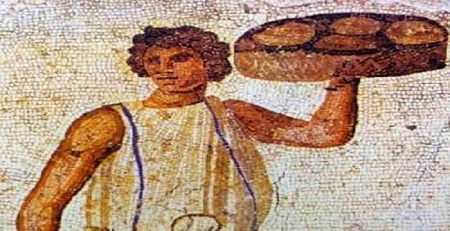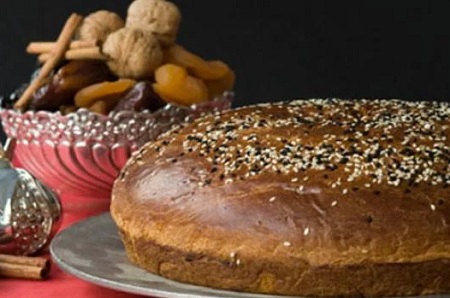Vasilopita is a New Year’s Day bread or cake in Greece and many other areas in eastern Europe and the Balkans which contains a hidden coin or trinket which gives good luck to the receiver.
Hasluck connects both the western and the eastern celebrations to the ancient Greek Kronia, the festival of Cronus, which involved selecting a “king” by lot, and then the Roman Saturnalia. The traditions surrounding vasilopita are very similar to western European celebrations of the Twelfth Night and Epiphany: the king cake of France and Louisiana and the tortell in Catalonia.

Nonetheless, in popular tradition, vasilopita is associated with a legend of Basil of Caesarea. According to one story, Basil called on the Roman citizens of Caesarea to raise a ransom payment to stop the siege of the city. Each member of the city gave whatever they had in gold and jewelry. When the ransom was raised, the enemy was so embarrassed by the act of collective giving that he called off the siege without collecting payment. Basil was then tasked with returning the unpaid ransom, but had no way to know which items belonged to which family so he baked all of the jewellery into loaves of bread and distributed the loaves to the city, and by a miracle each citizen received their exact share. In some tellings, the sieging tribal chief is replaced with an evil emperor levying a tax or simply with Basil attempting to give charity to the poor without embarrassing them.

Nowadays, on New Year’s Day families cut the vasilopita to bless the house and bring good luck for the new year!
Source: Wikipedia